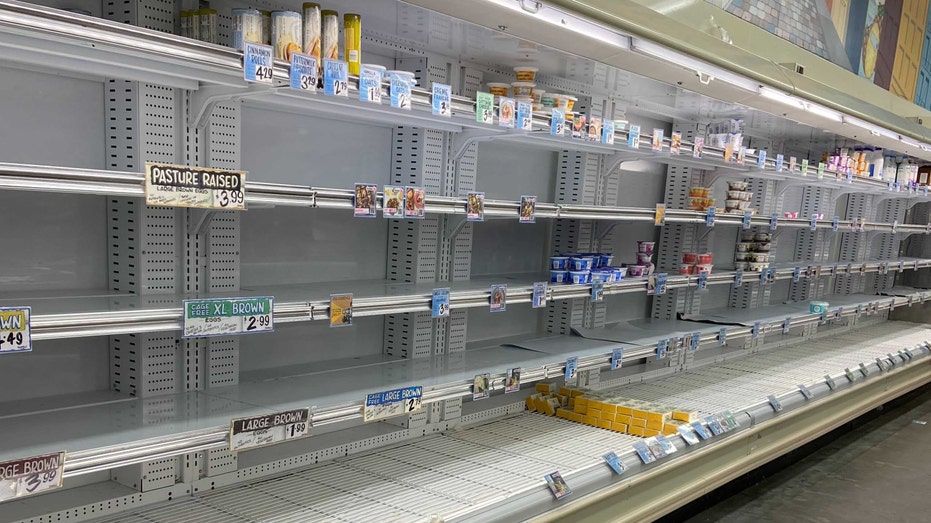Why are grocery store shelves empty? Billionaire supermarket CEO says ‘multiple choice of items' to blame
Omicron, inclement weather and oil prices only add to the supply crisis, according to Catsimatidis
Billionaire supermarket CEO on empty shelves: US stores in 'deep trouble'
Gristedes CEO John Catsimatidis weighs in on the impact of supply chain delays, rising inflation and the potential candidates for 2024 election.
Gristedes CEO John Catsimatidis explained why grocery store shelves are empty during an appearance on FOX Business’ "Mornings with Maria" Monday.
Catsimatidis said the coronavirus pandemic and inclement winter weather have a lot to do with bare aisles on top of the price of oil.
"It's a multiple choice of items happening," he said predicting that Russia attacking Ukraine could send crude oil prices to $100 per barrel.
"Mr. Putin will be laughing all the way to the bank," he said.
BILLIONAIRE SUPERMARKET CEO: HOW TO SOLVE INFLATION
Omicron’s impact on supply chain could lead to meat, egg shortages: Billionare Gristedes CEO
John Catsimatidis discusses fears of grocery shortages amid reports of ‘bare shelves.’
During a recent interview on "Cavuto: Coast to Coast," the billionaire supermarket CEO predicted that focusing on bringing down the price of oil by opening up Canada and Alaska could be the solution for sky-high inflation.
On Monday he told FOX Business' Dagen McDowell the omicron variant poses an entirely different threat to U.S. supply.
"So, what's happening in our country is omicron is keeping a lot of people home in the Midwest and a lot of places, taxing the ability of warehouses to stock the product, load the product and put it on the trucks that deliver to the stores," he said. "Now what's going on? There's a shortage of truck drivers, so it creates an entire system of problems."
GET FOX BUSINESS ON THE GO BY CLICKING HERE
Catsimatidis went on to say that even though his stores in the Northeast are not experiencing any supply setbacks due to their use of alternative suppliers, other vendors are being cut off at the manufacturing level.

Empty shelves at Trader Joe's Soho location in New York City. Monday, Jan. 10, 2022. Source: Kaitlyn Germain
"We're fully stocked," he said. "But stores in the rest of the country are in deep trouble because you drive around, and you see half the shelves are empty. And that's a serious problem, and it's caused by people staying home from omicron, the weather now and the prices are going up."
CLICK HERE TO READ MORE ON FOX BUSINESS
Catsimatidis predicted that food prices will only continue to increase and considered high inflation a tax on the lower middle class since "they’re the ones paying the price."






















